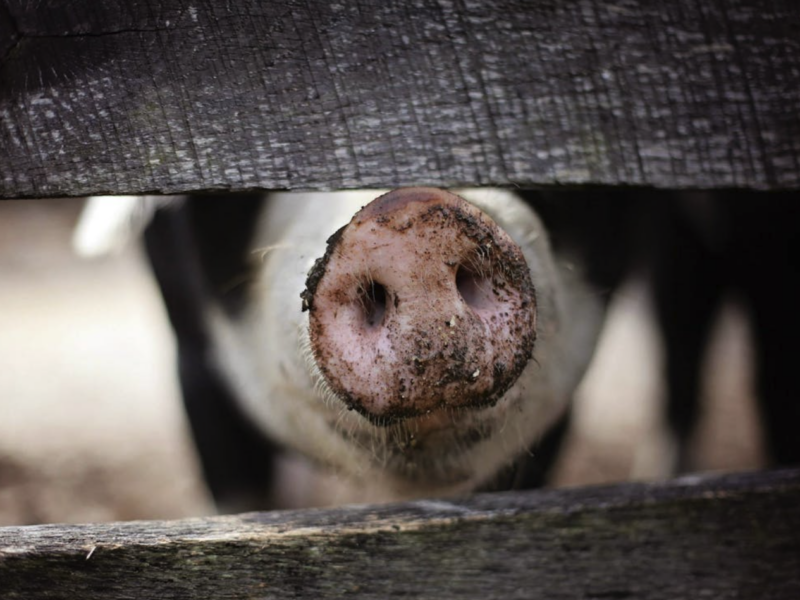Last names, also known as surnames, play a significant role in identifying individuals and their ancestral heritage.
In the United Kingdom, particularly in England, last names have a rich history and are often derived from various sources such as occupations, locations, personal characteristics, and even patronymics.
This article explores the fascinating world of British (English) last names, their meanings, and the stories behind them.
Table of Contents
Common British Last Names (Most Common Canadian Last Names)
Common British Last Names (Most Common Canadian Last Names)
- Smith
- Johnson
- Williams
- Jones
- Brown
- Taylor
- Wilson
- Anderson
- Martin
- Thompson
Popular British Last Names
Popular British Last Names
- Evans
- Walker
- White
- Roberts
- Green
- Hall
- Wright
- Edwards
- Turner
- King
Rare & Exotic British Last Names
Rare & Exotic British Last Names
- Featherstonehaugh
- Cholmondeley
- Beauchamp
- Marjoribanks
- Fettiplace
- Plunkett
- Strangeways
- Arundell
- Cocksedge
- Fortescue
Uncommon & Unique British Last Names
Uncommon & Unique British Last Names
- Gainsborough
- Lethbridge
- Quiller
- Venables
- Yelverton
- Zouch
- Fosbrooke
- Honeywood
- Loveless
- Nettleship
Most Common British Last Names
Most Common British Last Names
- Smith
- Jones
- Taylor
- Brown
- Wilson
- Evans
- Patel
- Davis
- Clark
- Walker
Cool British Last Names
Cool British Last Names
- Blackwood
- Raven
- Sterling
- Storm
- Winter
- Wolf
- Vale
- Knight
- North
- Stone
List of British Last Names
List of British Last Names
- Harris
- Lewis
- Robinson
- Hughes
- Edwards
- Morris
- Clarke
- Hall
- Ward
- Turner
Rich British Last Names
Rich British Last Names
- Windsor
- Rothschild
- Cavendish
- Percy
- Spencer
- Howard
- Fitzroy
- Mountbatten
- Churchill
- Balfour
Old British Last Names
Old British Last Names
- Beaufort
- Neville
- Plantagenet
- Tudor
- Stuart
- Lancaster
- York
- Mortimer
- De Clare
- De Vere
Long British Last Names
Long British Last Names
- Cholmondeley
- Featherstonehaugh
- Abercrombie
- Bellingham
- Fitzherbert
- Honeychurch
- Molyneux
- Ravenscroft
- Wetherby
- Wollstonecraft
Girl British Last Names [Female]
Girl British Last Names [Female]:
- Bronte
- Austen
- Nightingale
- Shelley
- Pankhurst
- Windsor
- Cavendish
- Eliot (George Eliot)
- Gaskell
- Blyton
(Names are gender-neutral, but some historically associated with famous women)
Men’s British Last Names [Male]
Men’s British Last Names [Male]:
- Shakespeare
- Darwin
- Newton
- Churchill
- Wellington
- Cromwell
- Drake
- Marlborough
- Peel
- Blake
(Again, names are gender-neutral, but some historically associated with famous men)
Famous British Last Names
Famous British Last Names:
- Lennon
- Beckham
- Rowling
- Churchill
- Chaplin
- Bowie
- Attenborough
- Branson
- Fleming
- Hitchcock
For the last names that start with specific letters, it’s a lengthy list so here are a few examples:
British Last Names That Start With A
British Last Names That Start With A:
- Adams
- Allen
- Atkinson
- Archer
- Abbott
- Ashton
- Armstrong
- Andrews
- Ashford
- Atkins
British Last Names That Start With B
British Last Names That Start With B:
- Bailey
- Barker
- Barrett
- Bates
- Bell
- Bennett
- Bishop
- Black
- Booth
- Bradley
British Last Names That Start With C
British Last Names That Start With C:
- Carter
- Campbell
- Chapman
- Clarke
- Collins
- Cook
- Cooper
- Cox
- Cunningham
- Curtis
British Last Names That Start With D
British Last Names That Start With D:
- Davis
- Dawson
- Dean
- Dixon
- Doyle
- Dunn
- Dyer
- Daniels
- Douglas
- Draper
British Last Names That Start With E
British Last Names That Start With E:
- Edwards
- Ellis
- Evans
- Eastwood
- Elliott
- Emerson
- English
- Elmore
- Elton
- Ewing
British Last Names That Start With F
British Last Names That Start With F:
- Fisher
- Foster
- Fox
- Francis
- Fraser
- Freeman
- Fuller
- Fenton
- Finley
- Fletcher
British Last Names That Start With G
British Last Names That Start With G:
- Graham
- Grant
- Gray
- Green
- Gregory
- Griffin
- Griffiths
- George
- Glover
- Gould
British Last Names That Start With H
British Last Names That Start With H:
- Hall
- Hamilton
- Harris
- Harrison
- Hart
- Harvey
- Hawkins
- Hayes
- Holland
- Holmes
British Last Names That Start With I
British Last Names That Start With I:
- Ince
- Ingram
- Irving
- Isherwood
- Ives
- Ivins
- Ivory
- Ibbotson
- Idle
- Inman
British Last Names That Start With J
British Last Names That Start With J:
- Jackson
- James
- Jenkins
- Johnson
- Jones
- Jordan
- Joyce
- Jennings
- Johnston
- Jeffries
British Last Names That Start With K
British Last Names That Start With K:
- Kelly
- Kennedy
- Khan
- King
- Kirby
- Knight
- Knox
- Kent
- Keegan
- Kipling
British Last Names That Start With L
British Last Names That Start With L:
- Lambert
- Lane
- Lawson
- Lee
- Lewis
- Lloyd
- Long
- Lowe
- Lyons
- Little
British Last Names That Start With M
British Last Names That Start With M:
- Martin
- Mason
- Matthews
- May
- Miller
- Mitchell
- Moore
- Morgan
- Morris
- Murphy
British Last Names That Start With N
British Last Names That Start With N:
- Nash
- Newman
- Newton
- Nicholson
- Noble
- Norris
- North
- Norton
- Naylor
- Neal
British Last Names That Start With O
British Last Names That Start With O:
- O’Brien
- O’Connor
- O’Neill
- Oliver
- Osborne
- Owen
- Overton
- Odell
- Orton
- Osman
British Last Names That Start With P
British Last Names That Start With P:
- Palmer
- Parker
- Parsons
- Patel
- Patterson
- Payne
- Pearson
- Perry
- Peters
- Phillips
British Last Names That Start With Q
British Last Names That Start With Q:
- Quinn
- Quigley
- Quirk
- Quill
- Quinlan
- Quarry
- Quest
- Quentin
- Quenton
- Quick
British Last Names That Start With R
British Last Names That Start With R:
- Reed
- Reid
- Reynolds
- Rhodes
- Richards
- Richardson
- Riley
- Roberts
- Robertson
- Robinson
British Last Names That Start With S
British Last Names That Start With S:
- Saunders
- Scott
- Shaw
- Shepherd
- Simpson
- Sinclair
- Singh
- Smith
- Spencer
- Stevens
British Last Names That Start With T
British Last Names That Start With T:
- Taylor
- Thomas
- Thompson
- Turner
- Townsend
- Tate
- Tanner
- Travis
- Trent
- Tully
British Last Names That Start With U
British Last Names That Start With U:
- Underwood
- Upton
- Urwin
- Usher
- Utley
- Ullman
- Ulman
- Umbers
- Unsworth
- Upson
British Last Names That Start With V
British Last Names That Start With V:
- Vaughan
- Vincent
- Vickers
- Vogel
- Vane
- Vernon
- Voss
- Valentine
- Vale
- Vardy
British Last Names That Start With W
British Last Names That Start With W:
- Walker
- Wallace
- Walsh
- Ward
- Watson
- Webb
- Wells
- West
- White
- Williams
British Last Names That Start With X, Y, and Z
British Last Names That Start With X, Y, and Z:
- Xander
- Yorke
- Young
- Yates
- Yeoman
- York
- Zimmerman
- Zane
- Zachary
- Zouch
Origins of British Last Names
The origins of British last names can be traced back to different periods in history.
Understanding the historical context can provide valuable insights into the meanings and significance of these surnames.
Anglo-Saxon Influence
During the Anglo-Saxon period (5th to 11th centuries), many English last names were derived from Old English words.
These names often described a person’s occupation, physical appearance, or a specific location.
Examples include Smith (blacksmith), Baker (baker), and Hill (dweller near a hill).
Norman Influence
After the Norman Conquest in 1066, French influence on English culture and language became prominent.
This influence is reflected in many English last names, which have French origins.
Names like Johnson (son of John), Harrison (son of Harry), and Bennett (blessed) are examples of Norman-influenced surnames.
Celtic Influence
The Celtic influence on British last names is particularly evident in regions like Wales, Scotland, and Cornwall.
Celtic surnames often have Gaelic or Welsh origins and are associated with specific clans or tribes.
Examples include MacLeod (son of Leod), Morgan (sea-born), and Griffiths (strong chief).
Common Types of British Last Names
British last names can be categorized into various types based on their origins and meanings.
Understanding these categories can provide a deeper understanding of the diverse range of surnames found in England.
Occupational Surnames
Occupational surnames were derived from a person’s profession or trade.
These names were often passed down from one generation to another, indicating a family’s traditional occupation.
Examples include Taylor (tailor), Cooper (barrel maker), and Turner (lathe worker).
Topographical Surnames
Topographical surnames were derived from specific locations or landmarks. These names often described where a person lived or worked.
Examples include Hill, Wood, and Ford. These surnames can provide insights into an individual’s ancestral connection to a particular place.
Patronymic Surnames
Patronymic surnames were derived from a person’s father’s name. These names often included prefixes such as “son of” or “daughter of.”
Examples include Johnson (son of John), Macdonald (son of Donald), and O’Sullivan (descendant of Sullivan).
Nickname Surnames
Nickname surnames were derived from a person’s physical characteristics, personality traits, or habits.
These names were often given to distinguish individuals with similar first names. Examples include Brown (dark complexion), Armstrong (strong arm), and Swift (quick).
Famous British Last Names
Throughout history, many individuals with British last names have made significant contributions to various fields.
These surnames have become well-known and are associated with notable figures.
Shakespeare
The last name Shakespeare is synonymous with the famous playwright William Shakespeare.
His works, such as “Romeo and Juliet” and “Hamlet,” have had a profound impact on English literature and theater.
Churchill
The last name Churchill is associated with Sir Winston Churchill, who served as the Prime Minister of the United Kingdom during World War II.
His leadership and oratory skills played a crucial role in the country’s victory.
Austen
The last name Austen is linked to the renowned author Jane Austen.
Her novels, including “Pride and Prejudice” and “Sense and Sensibility,” are considered classics of English literature.
Evolution of British Last Names
Over time, British last names have evolved and changed due to various factors such as migration, intermarriage, and cultural influences.
Understanding the evolution of these surnames can provide insights into the complex history of the British Isles.
Migration
Migration has played a significant role in shaping British last names.
The movement of people across regions and countries led to the adoption of new names or modifications of existing ones.
For example, the surname Anderson, meaning “son of Andrew,” originated in Scotland but is now found across the United Kingdom.
Intermarriage
Intermarriage between individuals from different regions or cultural backgrounds also influenced British last names.
This resulted in the blending of surnames or the adoption of new names altogether.
The surname Fitzroy, meaning “son of the king,” is an example of a name that emerged from intermarriage between Norman and English families.
Cultural Influences
Cultural influences, such as the introduction of Christianity or the influence of neighboring countries, also impacted British last names.
For instance, the surname Scott, meaning “from Scotland,” reflects the cultural heritage of individuals with Scottish ancestry.
FAQs – British (English) Last Names (With Meanings)
1. What are the most common British last names?
Some of the most common British last names include Smith, Jones, Williams, Brown, Taylor, and Davies.
2. Do British last names have specific meanings?
Yes, many British last names have specific meanings derived from occupations, locations, or personal characteristics.
3. Are British last names passed down through generations?
Yes, British last names are often passed down from one generation to another, preserving family traditions and ancestral connections.
4. Can British last names change over time?
Yes, British last names can change over time due to factors such as migration, intermarriage, and cultural influences.
5. Are there regional variations in British last names?
Yes, there are regional variations in British last names, particularly in areas like Wales, Scotland, and Cornwall, where Celtic influences are prominent.
6. Can British last names reveal information about a person’s ancestry?
Yes, British last names can provide insights into a person’s ancestral heritage, including their occupation, location, or familial connections.
7. Are there any famous British last names associated with literature?
Yes, the last name Shakespeare is associated with the famous playwright William Shakespeare, while Austen is linked to the renowned author Jane Austen.
8. How have British last names evolved over time?
British last names have evolved through factors such as migration, intermarriage, and cultural influences, resulting in the adoption of new names or modifications of existing ones.
9. Can British last names be traced back to specific historical periods?
Yes, British last names can often be traced back to specific historical periods, such as the Anglo-Saxon or Norman periods.
10. Are there any online resources available for researching British last names?
Yes, there are several online resources available, such as genealogy websites and surname databases, that can help individuals research their British last names.
11. Do British last names have any significance in modern society?
Yes, British last names continue to hold significance in modern society as they provide a sense of identity, heritage, and familial connections.
12. Can British last names be influenced by other cultures?
Yes, British last names can be influenced by other cultures through factors like migration, intermarriage, and cultural exchanges.
13. Are there any unique British last names that are not found elsewhere?
Yes, there are unique British last names that are specific to the region and may not be found in other parts of the world.
14. How can I find the meaning of my British last name?
You can start by researching online surname databases or consulting genealogy experts who can provide insights into the meaning and origins of your British last name.
15. Can British last names be used to trace family history?
Yes, British last names can be used as a starting point to trace family history and uncover ancestral connections.
Summary – British (English) Last Names (With Meanings)
British (English) last names have a rich history and diverse range of meanings.
They reflect the cultural, historical, and occupational backgrounds of individuals and provide insights into their ancestral heritage.
From occupational surnames to patronymic and nickname surnames, each category offers a unique perspective on the origins of these names.
Famous British last names associated with notable figures like Shakespeare, Churchill, and Austen further highlight the impact of individuals with these surnames.
The evolution of British last names through migration, intermarriage, and cultural influences adds another layer of complexity to their meanings and significance.
Related


